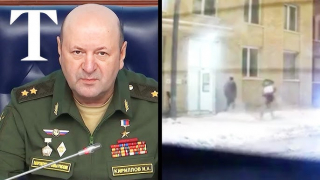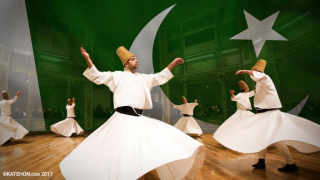2008 Mumbai Attacks: Fallacy of India's 9/11
"A fisherman noticed eight terrorists come ashore near Badhwar Park in Mumbai while two went back into the sea. The other two attacked the Taj later", India Today.
"November 26-29, 2008, the tragic day in India when,‘Pakistani’ men associated with the terror group Lashkar-e-Tayyiba stormed buildings in Mumbai, killing 164 people. Nine of the gunmen were killed during the attacks, one survived. Mohammed Ajmal Kasab, the lone surviving gunman, who was later executed in November 2012."
Such were the headlines that occupied the front pages of Indian news papers and were displayed as news tickers on all Indian news channels after the 26/11 incident back in 2008. The practice continues till date while the fact remains that the Indian authorities have failed to present any hard evidence regarding Pakistan's involvement in the incident. The Indian authorities started to blame Pakistan right off the bat while the Indian law enforcement forces were still engaged in a gun battle with the terrorists.
26/11, or as various news channels described it as ‘India’s 9/11’ is drawing towards a 10-year anniversary. With that backdrop, the Indian media has recurred to its rampant debate on how Pakistan authorities were involved in ‘victimizing’ India by sponsoring terrorism based on age-old rivalry.
One does not belittle the tragedy and loss of lives in the incident but the false portrayal of Pakistani state authorities sponsoring terrorism, an issue that has plagued the Muslim state more than any other in the region seems novel, and it needs to stop! Pakistan has done nothing but co-operate, right from the beginning, from tracing Kasab to information sharing. It was India, who slowed down the process and refused to hand over the information regarding the incident to Pakistan, without which a detailed investigation was impossible. Furthermore, the fact that India refused the request by Pakistan government to interrogate Kasab further solidifies India’s lack of interest in taking the case to its end. To add the final cherry on top, hiding Ajmal Kasab away from the public eye and his hasty hanging merely points fingers towards how the Mumbai attacks were used as a political tool for ‘Pakistan Bashing’ around the world.
Fortunately, truth and logic are what prevail. We have witnessed that 26/11 has been proved a false flag by none other than the Indian Intelligence agencies themselves. There are books, interviews and articles that have thoroughly described the sham, that ‘claims’ regarding 26/11 actually are. ‘Who killed Karkare’’ and ‘Betrayal of India- Revisiting the 26/11 Evidence’ by Elias Davidsson are among the notable books published.
“It is highly plausible, that major institutional actors in India, the United States and possibly Israel, were complicit in conceiving, planning, directing and executing the attacks of 26/11; evidence of a deceptive investigation is even stronger”.
Elias Davidsson has rebutted the Indian narrative and goes on to suggest that Indian version was totally concocted, based on deceit and outright lies, and that it was promulgated through a well thought out disinformation campaign ensconced in hyperbole which ended up benefitting US and India and victimizing Pakistan.
Moreover, incidences such as Mumbai Police Commissioner Hassan Gafoor, coming up and confirming the involvement of Indian men in the incident further raise our doubts regarding the allegations made against Pakistan.
While the truth is not yet known and three perceptions exist: The Pakistani, The Indian and the neutral perception, it is appalling to see the Indian media acting so recklessly and irresponsibly to just pick out their biased side of the story and fuel to the already present hatred towards Pakistan. The media, now in the globalized world being called the 4th pillar of the state has more responsibility than just going along with the baseless ‘conspiracy theories’ without taking actual proof into consideration. This just points towards a wider ‘agenda’ to keep the fire ablaze against Pakistan within the country and at the same time, internationally discredit it for its efforts against fighting terrorism. This seems rich for a country who refused to contribute to the investigation into the incident by concealing important information and not reciprocating for incidents taking place inside Pakistan, including the arrest of Indian spy Kulbhushan Jadhav. While, Pakistan on the other hand has not only cooperated but has at the same time at various incidents shown a display of integrity by giving a chance to India in approaching and meeting Jadhav.
Terrorist attacks are something that have hit Pakistan the hardest, owing to the geo-political location as well as the role played in the war against terrorism. Terrorist groups operating within Pakistan have attacked the home country, there is no reason to believe that they won’t do the same elsewhere to spur further tensions between the countries.
This adds up to the responsibility of the media to follow suit of the ethics of reporting and rather than taking the chance to sensationalize the issue, every chance it gets to bash Pakistan and focus on more pressing and ‘real world’ problems. Instead of resorting to the dried-up tactics of bringing Pakistan’s international image down by instrumentalizing Mumbai Attacks once again to hinder the process of the requested IMF bail-out package, it is high time that a check and balance is created on issue projection in both the countries, especially India.The volatility of the region in mind, the nuclear dynamics, history and a war against terrorism should be enough pointers to knock some sanity and sense into the media cells.













